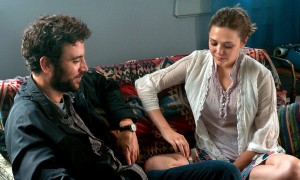 If you’ve ever mused on the appeal of Josh Radnor, Liberal Arts quite handily offers the most succinct, sincere answer possible. Why do people like him so much? Because he’s likeable. Maybe this is an unsatisfactory conclusion to a burning question for some of you, but regardless, it’s true. Whatever other qualities Radnor possesses as an actor (and a writer, and a director), he has amiable, if snooty and uptight, charm in spades. Whether he’s giving a physical presence to Bob Saget’s voice-overs in How I Met Your Mother or serving as the centerpiece and the architect of his own films, he’s harmlessly agreeable, though for some that could be a harsher indictment of his character than an unpleasant temperament.
If you’ve ever mused on the appeal of Josh Radnor, Liberal Arts quite handily offers the most succinct, sincere answer possible. Why do people like him so much? Because he’s likeable. Maybe this is an unsatisfactory conclusion to a burning question for some of you, but regardless, it’s true. Whatever other qualities Radnor possesses as an actor (and a writer, and a director), he has amiable, if snooty and uptight, charm in spades. Whether he’s giving a physical presence to Bob Saget’s voice-overs in How I Met Your Mother or serving as the centerpiece and the architect of his own films, he’s harmlessly agreeable, though for some that could be a harsher indictment of his character than an unpleasant temperament.
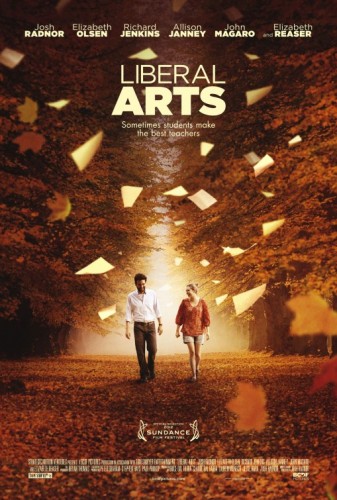 Yet it’s difficult to see anything negative in Radnor in his second feature film beyond a short-sighted vision; if you know Ted Mosby, then you also know Jesse Fisher. We meet Jesse in a montage of interviews he conducts as part of his job– he works in college admissions– and as he closes the book on his latest failed relationship. Put another way, he’s single and he derives absolutely no pleasure from his profession; he’s stuck in an existential rut, locked in neutral and with no way to go forward. Starting to sound familiar? Even after a few moments of getting to know Jesse, it’s hard not to suspect that he shares common ancestry with Ted somewhere in his family tree.
Yet it’s difficult to see anything negative in Radnor in his second feature film beyond a short-sighted vision; if you know Ted Mosby, then you also know Jesse Fisher. We meet Jesse in a montage of interviews he conducts as part of his job– he works in college admissions– and as he closes the book on his latest failed relationship. Put another way, he’s single and he derives absolutely no pleasure from his profession; he’s stuck in an existential rut, locked in neutral and with no way to go forward. Starting to sound familiar? Even after a few moments of getting to know Jesse, it’s hard not to suspect that he shares common ancestry with Ted somewhere in his family tree.
Once Liberal Arts veers into plot and begins defining its own voice, the echoes of The Solids you hear bouncing in your head will likely cease. Jesse gets invited to speak at a retirement dinner for his favorite professor, Peter Hoberg (Richard Jenkins); he’s dorm-sick and so naturally he seizes the chance to return to his alma mater with relish. No sooner does he arrive on campus than he’s introduced to Zibby (Elizabeth Olsen), a sophomore on campus who’s more mature and with it than someone her age has any right to be (at least, that’s the impression she gives), and a romance blooms between the two of them. Fie upon their age difference– she’s wise beyond her years, after all, and insightful enough to teach our self-styled life veteran a thing or two about opening up and not being so painfully wound up.
The trick is that she really doesn’t, but Liberal Arts seems to think that she does. Zibby’s a smart young woman– she’s clearly more advanced than Jesse, but given that most male protagonists in dramedies of this sort are frustratingly stunted, that may be damning her with faint praise. But the film treats her sentiments like epiphanies when they’re really just platitudes, and her infatuation with Jesse feels very much like Radnor’s own wish fulfillment fantasy with the downtrodden middle-aged man emerging as the object of desire for a nubile, mentally agile college girl. He has the good grace to be self-effacing about it– Jesse jots down age comparisons between the two at various points of their lives in one of the film’s best gags– but there’s little room to doubt that he loves the idea of playing crush to a much younger woman as much as Jesse revels in the actuality of it.
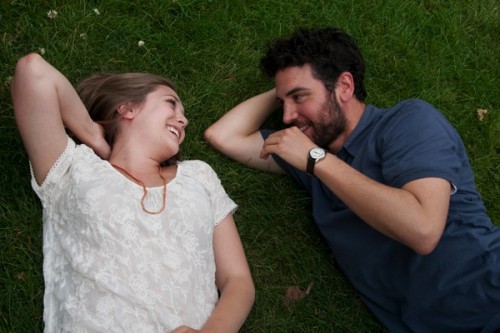
Eventually, Liberal Arts starts to come around to the idea that Zibby probably knows just as much about life and relationships as most forward-thinking and educated college students do; it cracks wise and acknowledges their scenario as being somewhat foolish. In fact, it takes an older woman (a superbly cold Allison Janney) to pierce Jesse’s delusions about adulthood and what it means to be both a grown-up and a man (as well as some timely incoherent advice from Zac Efron’s perpetually chipper hippie character). Zibby doesn’t offer him anything more than the chance to turn back the clock and bask in the glow of female undergraduate attention. Maybe that’s something of a tonic to him, but it’s not really a cure for his malaise.
And that’s refreshing. In a film that sticks to formula as steadily as Liberal Arts does, the decisions Jesse makes in the last act and the place he winds up are somewhat surprising in their uncertainty. The problem is that there isn’t a whole lot of weight behind them. What’s Jesse really struggling to attain? What is he missing in life that’s left him so unsatisfied? Answered vaguely, he’s stumbled into the pitfalls of nostalgia, and there’s something immensely unappealing (if relatable) about his longing for his glory days. Many of us come to miss our college years, but Jesse takes that yearning to another level of arrested development.
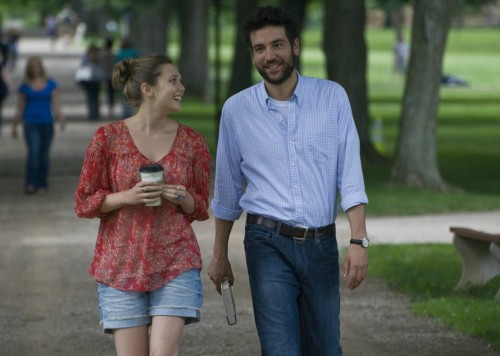
The much more interesting story here is that of Jenkins’ hangdog professor, who comes to regret his decision to retire almost immediately after making it. But maybe that’s the difference between Jesse and Peter. The younger man hasn’t found that thing he’s passionate about yet, and so has no idea what it really means to be unfulfilled. Peter, on the other hand, realizes how much his post and his profession meant to him, and he fights to win it back. Jesse lacks that worthy conflict; he just wants to be a carefree college kid with no real responsibilities again. And, again, that’s understandable even if it doesn’t necessarily make for gripping drama.
G-S-T RULING:
But despite that vast emptiness and the absence of resonant poignancy, Liberal Arts delights. Radnor has a universal, if slightly toothless, sense of humor and a strong sense of character; the best aspect of his film lies in the array of people Jesse interacts with, and so the story ends up riding on the powers of its cast, from the luminous Olsen to the unfailingly wonderful Jenkins. Maybe they’re not acting in the service of great cinema, but that doesn’t change the impact their efforts make on the film, and if Liberal Arts cannot mine great meaning out of its material it at least presents some fantastic performances.
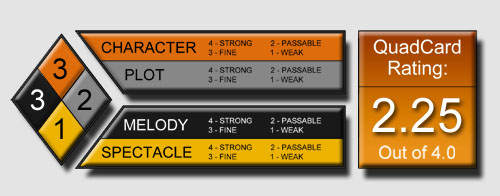
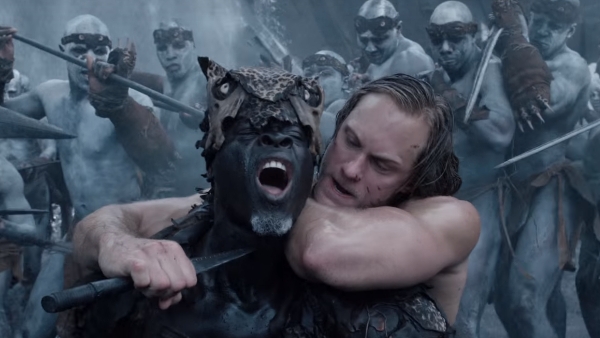
2 Comments
Jessica
I loved this movie!
Andrew Crump
Glad you liked it more than I did! For my own part I was just impressed that Liberal Arts is what it is. I honestly didn’t expect Radnor to make something this good, which might sound disingenuous given that I only gave it a 2.25.